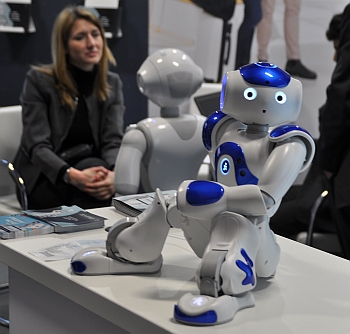ITB Hospitality Day Talk about the new impact of Internet of Things and AI
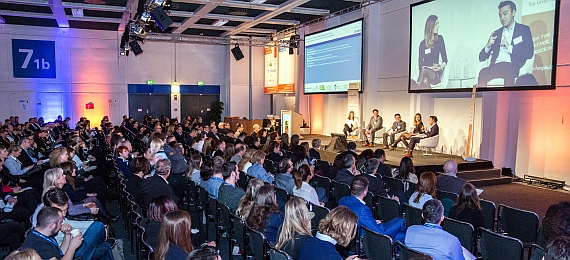 |
| It's still a long way to go to the connected hotel world. The ITB Hospitality Day discussion proved it. |
Berlin (March 24, 2017). Is the hotel industry prepared to embrace automation, Internet of Things and Artificial Intelligence? This question was asked during the 12th "ITB Hospitality Day" at ITB Berlin to an interesting panel of hospitality geeks who breathe new technology and could predict what the future of the industry will look like in 10 years. Moderated by Dr. Andrew Lim, professor of Technopreneurship and Innovation in Hospitality at Hotelschool The Hague, these experts talked about: digital reception, localized automation, the hospitality of things, smart PMS, guest room automation, mobile engagement, integration of guests' devices and the security around it. Hoteliers are warned: you have to be in it to win it.
The hospitality industry is at the brink of a third wave of change. Guests today expect technology to follow them wherever they go, from home to work, to business trips and of course holidays. "With the coming of smart or connected homes, the Internet of Things (IOT) and Artificial Intelligence (AI) is no longer a 'nice to have' technology gimmick, but a 'need to have' to stay in the game of the highly competitive hospitality market," confirmed Andreas Proefrock, Director Strategic Alliances and Technology Partnerships at Alcatel-Lucent Enterprises.
For him, just like for the three other panelists, betting on innovations will bring hoteliers great opportunities to reconnect with their guests, get to know them better to the point of suggesting services before they even know they want them. Collecting first-party data on behalf of her company, Mareike Rossmann, Senior Manager Hospitality at Ignition One, helps hoteliers understand what the user needs and how he is engaging with the hotel brand. An expert in analyzing unknown users' behavior before they become known customers, she believes that guest experience doesn't start anymore when one physically checks in at the hotel, but long before with the "digital reception".
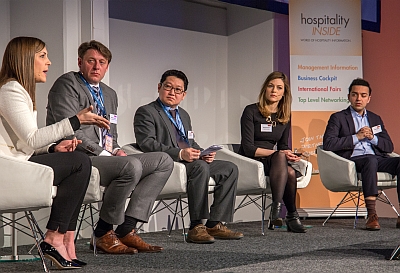 |
|
| The experts: (from left) Sarah Kennedy, Andreas Proefrock, Dr Andriew Lim, Mareike Rossmann and Rohan Thakkar. |
PMS turn from
property to customer
"Today, what's really important for an hotelier is his own website. Having a digital reception means he can learn and eventually capture a user who, in 80 to 90% of the cases, would leave his website without converting or booking and who would probably never come back. When someone is visiting your website it means he is already interested in what you have to offer. This is a huge opportunity to leverage data and use them to interact with this consumer at the right time. We help hoteliers by bringing qualified traffic to that digital reception," she said. All panelists agreed on the fact that putting the data of that user in the heart of hotels' technology is essential to make it more intelligent and create more sophisticated processes.
Sarah Kennedy Ellis, who runs Sabre Global Marketing efforts for Sabre Hospitality Solutions (which is Sabre's newest and fastest growing area of business and investments), couldn't agree more. "Property Management Systems by name, have always been designed around the property. But that's changing as PMS are now designed to enhance the guest experience putting him and his needs first. And that's where automation plays a role. Thinking about which services, or functions or tasks we can start to automate within the system itself is crucial as it allows the actual guest experience to be better in the physical environment," she explained.
Investing to help the industry move forward towards more innovations across the service sector is the focus of many companies. Sabre is one of them. The group is experimenting with different ways of using different types of data to grant the property "intelligence" in a very scientific way, e.g. when someone is walking in a property, who he is and what other type of data we can pull out to inform the service agent and help him serve the customer better.
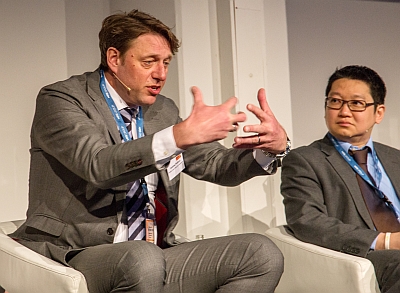 |
|
| For Andreas Proefrock IOT is the decisive driver for the future. |
"The more they know the better hoteliers can tailor the service to the exact needs of their guests," summed-up Sarah Kennedy Ellis, underlining the fact that in order to work, interaction must be on real time and shared with all the staff, from receptionist to housekeeping.
Yotel check-in: Learning from
other industries
Automation is something Yotel made the headlines with. Its Vice President Strategic Development, Rohan Thakkar reminded the audience that from the beginning, his group (5 operational hotels, 12 under construction) used automation with its concept of Kiosk check-in. "Experts told us then that it will distract from guest experience, but it worked, and today 98% of our check-in is completed via Kiosk." In all transparency, the young VP also shared the fact that this concept came from the airline industry, just like their rooms were inspired by airlines cabins. "Everything we do now in terms of innovations, whether it is revenue management or the future of our brand, we always look at what has been tried and tested in other industries," he confessed.
Although, Yotel introduced the luggage robot in its New York property, Rohan Thakkar believes that innovation is not necessarily a robot. "It can be something that increases efficiency from an operational standpoint, or increases returns through efficient real estate…in any case, wherever we go, we try to 'localize' automation and innovation in different ways".
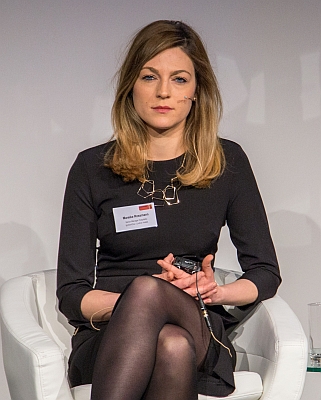 |
|
| Mareike Rossmann: Data analysis is a must. |
As examples, he mentioned new food vending machines coming with the future Yotel Boston and San Francisco and even drones, which could be used to serve drinks at the bar in Yotel Singapore.
The "Hospitality of Things"
No doubt that innovation is part of Yotel's DNA, but most hotels don't work this way. The vast majority still needs third-party expertise in order to help them tame digitalization, automation and Artificial Intelligence. Companies like Alcatel-Lucent Enterprises, represented by Andreas Proefrock, offers hoteliers solutions, which embrace innovations, from communication services, data and integration products to mobile engagement, in a nutshell: the entire ecosystem needed within the hospitality industry.
"Once the qualification, identification and the profiling of the guest have been done, one still needs to integrate it into the hotel operation and to do so, one must have a solution that gives end-to-end transparency, mobility support (as guests and staff are highly mobile), but also acknowledges the Internet of Things." IOT? People are going crazy about this. Many have already experienced it at home and want the same when staying in a hotel. The question is how do you make sure that the IOT service one is providing from the hotel side interacts with the IOT that guests have on their side?
Well, for Andreas Proefrock, it's all about the "hospitality of things" (HOT). "HOT is when IOT meets AI (artificial intelligence) in a hotel. It’s when things are connected without disruption, allowing you to personalize the guest experience and use it in daily hotel operations (guest room temperature, lights etc.,)," he explained. Controlling the guest experience from A to Z is Yotel's goal.
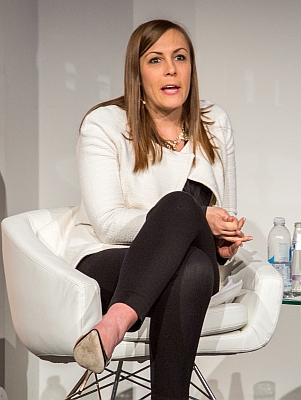 |
|
| Sarah Kennedy: Interaction with the guest should happen in real-time. |
The hospitality group is currently working on how to track guests from Paris to New York, use their flight data to know when they land, share tips with them about the airport, and facilitate their transfer to their property downtown. "Both our properties in Paris and NYC can interact within the same PMS,” underlined Rohan Thakkar.
Connecting with AI and chatbot
Connect, personalize, enjoy. These are the three very important points hoteliers should be focusing on. Yet, one often forgets about another crucial step: what happens after the customer checks out? Hotels' "after care" strategy is key as it leads to good or bad reviews, guest satisfaction and loyalty.
"And it all starts with how you present yourself, how you engage and if you are in the first part of the guest's life cycle," analyzed Andreas Proefrock. "That's when AI and chatbot can become handy," said Sarah Kennedy Ellis who, at Sabre Labs, has been experimenting a lot on how to provide and extend the service experience in a semi-automated way and how to create interfaces that allow hotels to control the amount of artificial interaction that can happen versus when is it appropriate to turn it over to a human. In other words, how do you manage to go from bot to human?
For Mareike Rossmann, there is a need for self-learning intelligence "because humans are limited when it comes to putting business rules in place that will predict customer behavior; that is where AI is essential." In answer to the question how future development will drive the industry, answers were multiple but always positive. For Andreas Proefrock for instance, it will be all about AI and IOT. "Since the first step of guest experience starts outside the hotel, there is a high level of AI used to collect data. Then IOT intervenes when one is in the hotel, and it's a mix of both when one leaves."
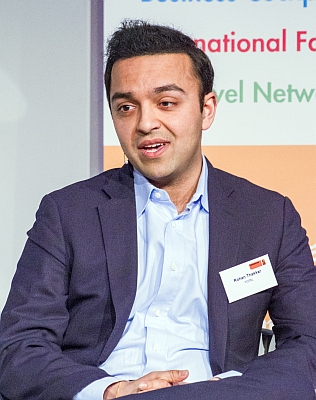 |
|
| Rohan Thakkar: Yotel already earns extra money by innovation. / all photos: HI |
For Rohan Thakkar, the future is bright as using these innovations allows one to tap into untapped revenue such as late check-out for instance. "Thanks to technology, we made an extra 300,000 dollars last year just from late check-out being available via technology.” Charging right at the point of need is ideal. Sarah Kennedy Ellis added: "We have seen 2.5 million dollars of additional revenue flowing through our system from hotels based on late check-out alone because hotels were offering the service at the right time, for a price people were willing to pay right at that time. It's when point of need and point of service converge".
Making services available online and via mobile is important, but since most people travel with their own devices, the future for hotels could be to allow guests' to use their own devices and integrate them into the hotel system. Guests will not only continue to use their own devices to interact with the staff and manage all bedroom automations, but for the hotelier it's an open sesame to lots of data. "On this particular topic, there might well be a security issue," warned Sarah Kennedy Ellis. "It's pivotal that hotels have built in security in the future. Using IOT requires strong foundations to prevent hacks," confirmed Andreas Proefrock who believes this is the way the industry is heading.
Can we avoid all this? No, we can't. Both AI and IOT are here to stay and will eventually grow and converge into the use of robots with further automation down the line. Give it 10 years. / Sarah Douag
|
THE MEGA TRENDS FOR IOT AND AI IN HOSPITALITY Guest room automation: Hotels have looked at or even partially adopted guest room technology with the overtaking of GEN X by the Millennials and their tech-savvy adoption of smart-home technology. Hotels now need to go a step further by fully endorsing guest room automation for operational efficiency, personalized experiences and savings on energy costs. From preventive to predictive maintenance: As more and more sensors will become part of our daily lives, they will provide valuable interactions and insights allowing a change from preventive to predictive maintenance. This allows building managers to collect real-time data and information about all equipment and in case of equipment failure, to act accordingly. It will free time and resources for other tasks within the hotel and lead to cost savings.
Mobile engagement: With the multitude of apps available, with the millennials travelling the world with an average of 3 smart devices per guest, with IOT and AI streams now being part of these devices, hoteliers need to think differently. Mobile check-in and out, smart connected door locks, etc. increased guest satisfaction. Ultra-personalization: Guests expect a personalized experience that is in accordance with their preferences and profile. These are collected and processed based on various data collected via various means (Google, taxi company app, etc.) Location-based interaction: Users of smart devices are quite adapted to using information about traffic, directions, meeting places, etc. based on geolocation. When staying in a hotel, the concierge will often be asked "where do I have to go for a nice supper" or "when should I leave for the airport if my flight leaves at…?" Changing this into a digitized reception desk by combining the location-based information from several apps with the preferences and profiles stored within the PMS, hotels can optimize their guest welcome and start up selling offers like late stay, midnight snacks, drinks, etc. On top of that, by using location-based interaction, hotels can detect room occupancy and switch on/off the lights, air conditioning, etc., which results in cost savings from an operational point of view. Natural User Interfaces instead of Graphical User Interfaces: Changing from graphical to natural user interfaces will help hotels to reach a high acceptance level of the services rendered through IOT and AI. The ultimate Natural User Interfaces for a guest is requesting hotel services through voice-controlled input (phones, tablet, TV). Natural User Interface should also be made available to hotel employees as this will help to optimize hotel management operations. Open APIs (Application Program Interfaces) and third-party integration: As the market for IOT and AI will continue to grow, products and solutions centered on IOT and AI will show exponential growth from a multitude of vendors. It is therefore imperative to have an open API library and the capabilities of third-party integration to provide a true end to guest end experience. Open APIs will continue to play the pivotal part in the IOT/AI journey and a native open systems architecture is the foundation for success. By Sarah Douag, supported by Andreas Proefrock of Alcatel-Lucent Enterprises |
Watch the video of this panel in full length!
Continuative Links:
- March 24, 2017 Lending the soul from the full blooded restaurateur ITB Hospitality Day Talk on successful food concepts for hotel chains
- March 17, 2017 Tasty, colorful, social, central - ITB Hospitality Day Talk 2017: Hostel experts about the new colorful feeling
To print this article you have to be registered and logged in for newsletter, visitor or subscription.






